June 30th, 2008 by Eugene Barsky | No Comments »
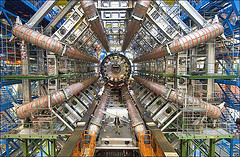
CNN runs an article today about the CERN’s Large Hadron Collider.
The article raises some fears that the Large Hadron Collider could exceed physicists’ wildest conjectures: Will it spawn a black hole that could swallow Earth? Or spit out particles that could turn the planet into a hot dead clump?
The article tries to answer those questions with CERN and other physicists. A very nice read – here is the full text – http://www.cnn.com/2008/TECH/06/30/doomsdaycollider.ap/index.html
The comments are open for any UBC folks that are willing to address this issue 🙂 After all, we have our own system here at UBC – at TRIUMF…
Thanks to Anne Miele for the link.
** Photo by Image Editor
Posted in General Science, Main, News, Physics, Science - undegraduate classes | No Comments »
June 25th, 2008 by Eugene Barsky | No Comments »
Rube Goldberg machine is a deliberately complicated apparatus that performs a very simple task in very indirect and convoluted fashion.
Many engineering schools have Rube Goldberg machine contests – see Purdue University site or University of Wisconsin Milwaukee site
I particularly like this Honda ad below that uses the Rube Goldberg machine principle 🙂
** Thanks to Sheryl Adam for the tip
Posted in General Science, Mechanical Engineering, Physics, Science - undegraduate classes | No Comments »
June 17th, 2008 by Eugene Barsky | No Comments »
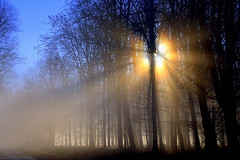
The 13 June 2008 issue of Science features a special issue about forests in 21st century.
They called this issue Forests in Flux, and it could be of interest to all UBC people dealing with forestry, wood sciences and related areas 🙂
http://www.sciencemag.org/content/vol320/issue5882/index.dtl#special-issue
** Photo by Today is a good day
Posted in General Science, Science - undegraduate classes, Wood Sciences | No Comments »
June 11th, 2008 by Eugene Barsky | No Comments »
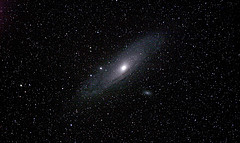
Here is another podcast we recorded back in April 2008. It is presented by Prof. Mark Halpern, from the UBC Physics and Astronomy Department.
Here is the abstract for this presentation:
The universe is filled with a thermal glow called the cosmic microwave background that comes from the hot plasma which filled it early on. Measurements of this background made by the NASA satellite WMAP have determined the age, geometry and composition of the universe with new precision, determining that the universe today is dominated by a dark energy that is causing it to expand ever more rapidly. The mission has also determined that baryonic matter–the atoms and molecules we see around us–only form a few percent of the total energy density of the universe today, and has determined the epoch at which the first stars formed. Recent results give a tantalizing picture of the first very small fraction of a second in the “big bang”. Six years after its launch WMAP remains healthy and the data continue to pour in. This talk will explain to a general audience what this experiment tells us about how the universe began and what it is made out of.
Here is the audio file – Measuring how the universe began
Here you can also find the PDF file of the presentation and the movie that Prof. Halpern demonstrated – https://circle.ubc.ca/handle/2429/660
** Photo by makelessnoise
Posted in General Science, Physics, Podcasts, Science - undegraduate classes | No Comments »
June 4th, 2008 by Eugene Barsky | No Comments »
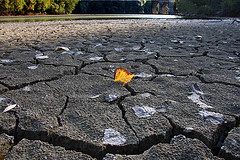
This long awaited report by the US Climate Change Science Program analyzes the effects of global change on natural and human environments, agriculture, water resources, social systems, energy production and use, transportation, and human health. It analyzes current trends in global change, both natural and human-induced, and it projects major trends for the future.
On their site – http://www.climatescience.gov/Library/scientific-assessment/ you can find the full report, the executive summary and other related materials.
** Photo by Enzo D
Posted in Earth and Ocean Sciences, General Science, Main, News, Science - undegraduate classes | No Comments »
June 2nd, 2008 by Eugene Barsky | No Comments »

Brian Greene, a professor of physics at Columbia, and the author of The Elegant Universe and The Fabric of the Cosmos, writes about “the powerful role science can play in giving life context and meaning.”
Put a Little Science in Your Life
** photo by smiling_da_vinci
Posted in Main, News | No Comments »
May 28th, 2008 by Eugene Barsky | No Comments »
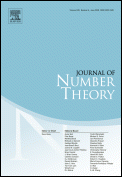
The Journal of Number Theory has created a presence on YouTube with video author abstracts.
JNT features selected research articles that represent the broad spectrum of interest in contemporary number theory and allied areas. A valuable resource for mathematicians, the journal provides an international forum for the publication of original research in this field.
https://www.youtube.com/user/JournalNumberTheory
Posted in Main, Mathematics | No Comments »
May 21st, 2008 by Eugene Barsky | No Comments »

IEEE.tv is an internet based television network that produces and delivers special-interest programming about technology and engineering for the benefit of IEEE’s members and the general public.
IEEE.tv Public Access is free of charge to the public, and does not require IEEE membership or log-in.
Here is the url to view its programs – http://www.ieee.tv
Some recent programs include:
* Emerging Field of Biomedical Engineering
* Energy Innovations: The Hydrogen House
* Group on Earth Observations(GEOSS): Technology
** Photo by ___federico___ [happily married]
Posted in Main, News | No Comments »
May 14th, 2008 by Eugene Barsky | No Comments »
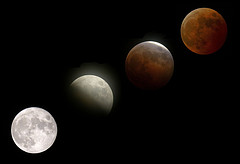
Microsoft’s much anticipated WorldWide Telescope was released on Tuesday – May 12th, 2008.
There is a very nice article about it in the New York Times – Two New Ways to Explore the Virtual Universe, in Vivid 3-D
Moreover, around two months ago, Google also introduced a Web-based version of Google Sky, layering space images on its searchable map service.
Take a look on the books UBC Library has on this topic of Astronomy
** Photo by Fort Photo
Posted in General Science, Main, News, Physics, Science - undegraduate classes | No Comments »
May 12th, 2008 by Eugene Barsky | No Comments »

Dr. Bernard Laval and his PhD student Alex Forrest were invited to join a NOAA Signature Expedition to do baseline mapping of the state of coral reefs surrounding Bonaire (Dutch Antilles) using UBC-Gavia, UBC’s robot submersible. More information about the expedition can be found at: NOAA Ocean Explorer: Bonaire 2008.
**Photo by divemasterking2000
Posted in Civil Engineering, Main | No Comments »









